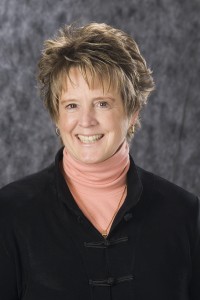By Elizabeth Kohlstaedt, PhD, Clinical Director
Our treatment model at Intermountain is termed “developmental-relational.” We seek to understand children’s behavior–even their most outlandish behavior–as expressing a developmental need. That need may be for reassurance, for closeness, for attunement, for safety, for security, for specialness, for boundaries, for predictability, for being heard. The healing way to meet that need is through relationship, so our direct care staff in our residential program form intentionally intimate relationships with seriously emotionally disturbed children, meet their needs for structure and affection, and help them gain frustration tolerance. Our psychotherapists help children figure out what their needs are and help them find better ways to express them to us and then to their parents. And then we help the parents find ways to establish structure and hear those needs and meet them. This pattern takes place in all of our programs, in school based services, in outpatient therapy, and in family based services. There is always a direct care staff to help the child in the here and now and a therapist who works with the parents and children. Sounds pretty simple, doesn’t it?
If it is so simple, why don’t more treatment programs use this approach? For 2 reasons: the first is our fascination with “science” and our belief that if we call something a disease, there will be a “cure.” As a result, many of these children have been diagnosed with a serious mental illness and treated solely with medication, when the real problem is that they aren’t able to function within healthy family relationships. The second reason is that the developmental/relational approach is incredibly difficult with seriously emotionally disturbed children and with children on the autism spectrum.
Consider the 10 year old child who has grown up with parents who were so tired, stressed and angry with each other that they either gave into his tantrums to keep him quiet or shouted at him to just shut up. Since 2, this child has learned that if you throw a big enough fit, no matter what the age, you’ll get what you want. Now he is 10 and unable to stay in school. The developmental need, in this case, was learning frustration tolerance at 2 and that his parents could say no, provide structure and still be his loving parents. He is now in our School Based Services program where mental health specialists help him daily learn to tolerate frustration. His parents attend the Circle of Security class taught by Intermountain in which they learn how to read those developmental cues, how to meet that 2 year old need for structure, containment and closeness and how to be “bigger, stronger, wiser and kind.” He is also in occupational therapy through Intermountain to deal with sensory integration issues.
Or, there’s the 14 year old boy with high functioning autism who is going through a normal developmental process of hormonal surges and biological need to separate from his primary attachment figure, in this case his mother. He sometimes rages at his mother and has tried to choke her in his frustration. He has been extremely aggressive in school as well; pummeling another child whom he felt threatened him. He has developed an obsession with playing video games in which the hero violently kills all those who stand in his way. He never really tells anyone about his fantasies of blowing people up who have hurt him because he knows they’ll be frightened of him and he’ll feel worse. But one day, he confides these fantasies to his outpatient therapist, who talks about these fantasies being an expression of anxiety about separation and the anger about being a normal part of growing up. Then they work with the family based services staff to help his parents engage him in more relational activities, and to help him cope with separation. And they lock away the family firearms to protect him and others. Yes, his separation anxiety looks like rage, but it’s really anxiety about growing up. We all have it, he just experiences it in more black and white terms and has a harder time dealing with it with others. Once again, the developmental need – separation – has to be incorporated into a relational process– healthy individuation from his parents.
In our society, we have too often let relationships migrate to the bottom rung of the importance ladder. We’d rather take a pill or play a game than invest in the hard work of a relational solution that involves our personal energy. Overwhelmed parents give their children videos or park them in front of the television, and then are surprised when the children behave as if relationships aren’t important. If we don’t teach children from the earliest moment that they are special, that relationships are important, and teach them how to tolerate frustration, we are leading them to a path of a violent society in which individual needs must be immediately gratified or a “tantrum” ensues. We have forgotten that “parent” is an active verb. It is something we have to think about and actively work on. What are the values that we are trying to instill in this child? Who do we want him to be when he is 10, 20, and 30? And how do we intervene when he is 2 to begin that process?
Most of the parents we treat are loving and desperately want to be better parents, but overwhelmed with the needs of a child who may have had a temperament that is “on fire” or on the autistic spectrum. They need help; help defining values, help in figuring out how to help a 2 year old with frustration; how to create sufficient structure and boundaries that the child feels safe. They need help understanding what the developmental need is when the child throws the block in frustration and how to deal with it so that when he goes to school, he doesn’t throw the desk.
What we are trying to create at Intermountain is what we all want in our society: caring solutions, strong families and healthy communities. And the best place to start with that is with children and families.
—
 Dr. Kohlstaedt is a licensed psychologist and has been the clinical director of Intermountain for over 21 years. She holds a BA and an MA in education from Purdue University, Indiana, an MA in experimental psychology from Arizona State University and a PhD in clinical psychology from the University of Montana. She has served as adjunct faculty at Syracuse University, and has trained medical interns from Upstate New York Medical Center, and psychology, social work, and counseling interns from across Montana. Dr. Kohlstaedt has appeared widely in the media to discuss attachment disorders and has trained staff, parents, and professionals across Montana. She was recently selected as one of the University of Montana’s Outstanding Alumnae for 2014.
Dr. Kohlstaedt is a licensed psychologist and has been the clinical director of Intermountain for over 21 years. She holds a BA and an MA in education from Purdue University, Indiana, an MA in experimental psychology from Arizona State University and a PhD in clinical psychology from the University of Montana. She has served as adjunct faculty at Syracuse University, and has trained medical interns from Upstate New York Medical Center, and psychology, social work, and counseling interns from across Montana. Dr. Kohlstaedt has appeared widely in the media to discuss attachment disorders and has trained staff, parents, and professionals across Montana. She was recently selected as one of the University of Montana’s Outstanding Alumnae for 2014.




